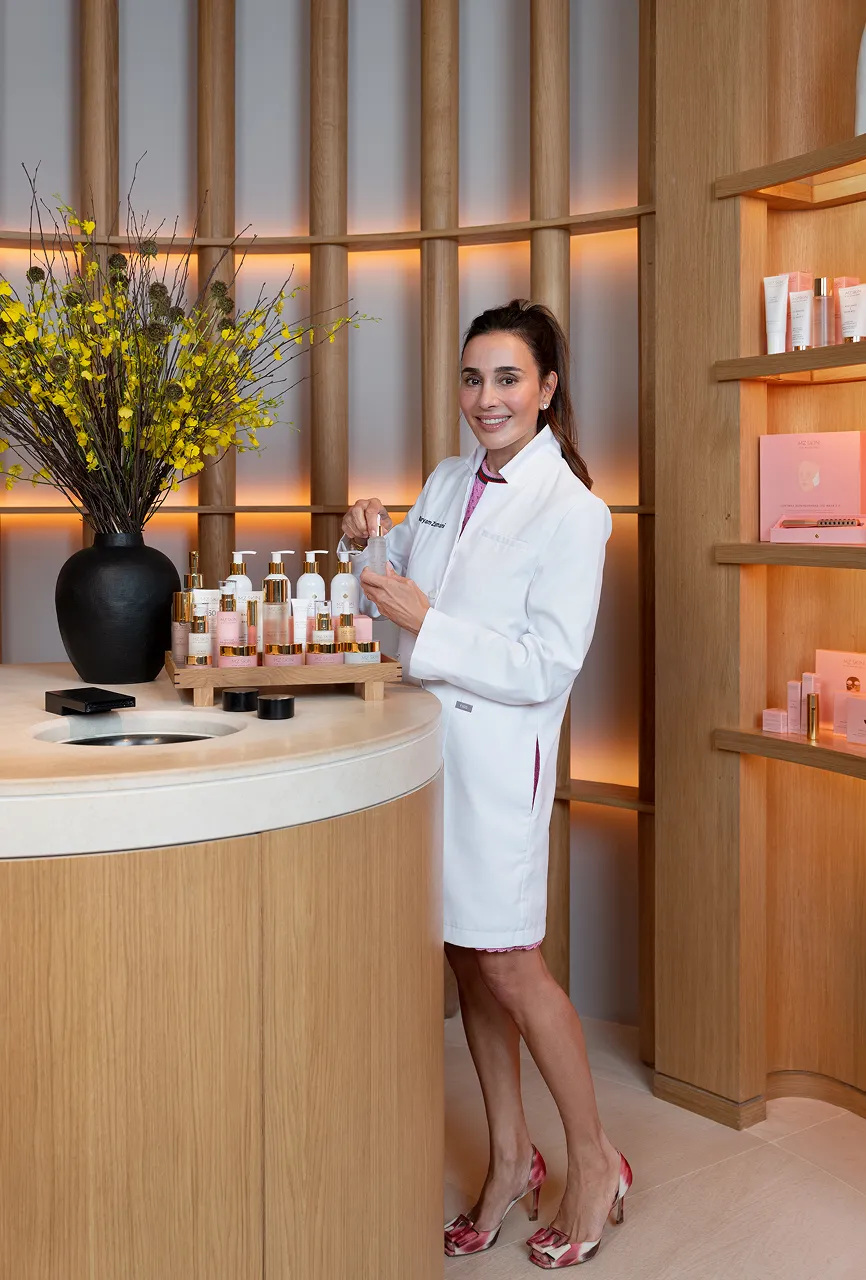Blue Light and Skin
What is it?
Blue light has gained attention in dermatology due to rising screen time from digital devices. This high-energy visible (HEV) light can penetrate deeply into the skin, potentially causing oxidative stress and accelerating signs of aging.
Too much blue light exposure has been associated with collagen degradation, uneven skin tone, and a lackluster complexion. It may also weaken the skin’s natural barrier, making it more sensitive and reactive.
Blue Light and Skin Protection
To defend your skin against blue light, use antioxidant-rich products containing ingredients like vitamin C or niacinamide to neutralize free radicals. Wearing broad-spectrum sunscreen indoors can also help block HEV light. Reducing screen time or applying blue light filters on devices adds extra protection. For concerns like pigmentation or dullness, treatments such as chemical peels or LED therapy can help rejuvenate and brighten the skin.
Research on the impact of blue light on skin health is expanding, though it's still not as extensive as the studies on UV exposure. While sunlight-derived blue light has been shown to affect the skin, the long-term effects of artificial sources like screens remain less clear. For now, experts recommend preventive measures such as using antioxidant-enriched skincare, applying sunscreen, and installing blue light filters—especially for those frequently exposed to screens or natural blue light outdoors.
Testimonials
Trustindex rating score: 4.7 of 5, based on 222 reviews
Book Consultation
As a leading Oculoplastic Surgeon with special interest in Facial Aesthetics, Dr. Maryam Zamani has garnered a global reputation - both in the US and UK - for her meticulous attention to detail and sought-after techniques for eyes and facial aesthetics.
Located on the Kings Road, our clinic is easy to reach from Chelsea, Kensington, Belgravia, Knightsbridge, South Kensington, Fulham and Battersea. We are positioned just moments from Sloane Square with excellent transport links across Central and South West London.
Public Transport
- Nearest tube: Sloane Square (District & Circle lines)
- Approx. 5-minute walk
- Multiple bus routes along King’s Road
Parking
- Metered on-street parking available on surrounding roads
- Nearby car parks: Duke of York Square & Cadogan Place
- Please allow additional time during peak hours
Accessibility: Please let us know if you require any assistance prior to your appointment, our team will be happy to help ensure your visit is comfortable.
.avif)




